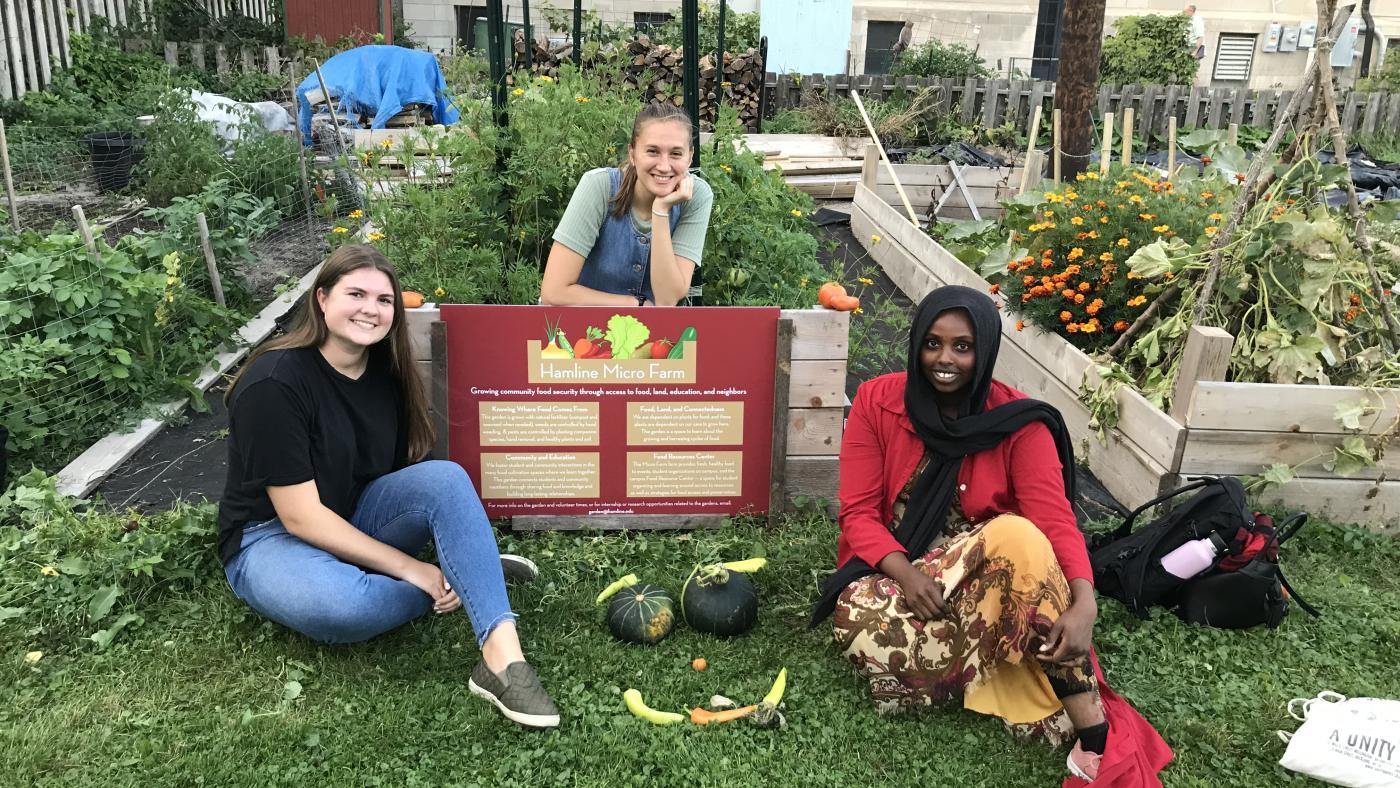The Hamline University MicroFarm was recently accepted into the United States Department of Agriculture’s People’s Garden Project, a nationwide effort to invest in urban agriculture with a goal of centering equity, food access, advancement of local and regional food systems, as well as environmental conservation.
The People’s Garden project signals an increased focus by the USDA on urban agriculture.
“Many climate migrants and others pushed off their lands are farmers, and we’re realizing there are more and more people who have agricultural skills now live in cities,” said Valentine Cadieux, Professor of Environmental and Climate Studies, “so the USDA is piloting new urban service centers for agriculture in 27 cities, and St. Paul is one of those cities.”
The Hamline MicroFarm was established in 2018 and is composed of two large garden beds, located north of East Hall, and 13 additional beds south of Hamline Church in a lot off W Minnehaha Avenue. These garden beds, along with the SPROUT garden at Hamline Church, are stewarded by three student interns every summer, and visited by classes throughout the school year.
Cadieux estimates about 100 students interact with the MicroFarm each semester, from programs across campus. The farm also works with the Cross-Campus Food Access Coalition, an action team of the Metro Food Justice Network, and welcomes many visitors each season from the community (including much beloved mentors from the Urban and Farm Alliance) and from nearby schools.
“We have tried to make the MicroFarm spaces where students can practice what they’re learning in the programs of Environment and Climate Studies and Natural Science and Environmental Education, and develop their relationship with plants, land and the community,” Cadieux said.
Now designated a People’s Garden, the Hamline MicroFarm received an $8,000 federal grant that will provide resources to maintain the farm’s stability, outreach and programming, and will fund projects for new raised beds behind the Creative Writing Program house and a gathering space picnic table.
The farm provides fresh, healthy food to campus events, students, the campus Food Resource Center as well as community members and the Hamline Midway Elders. It also increases access to food and land education by fostering student and community interactions with food cultivation sources, connecting students and community members through sharing food, knowledge and practical experience in the gardens.
“So many in this generation face the environment in terms of fear and scarcity, so to have an experience with so much abundance and growth is very meaningful and reassuring," Cadieux said. "It allows you to realize a key part of your relationship with an environment: you take care of the land and the land takes care of you. You can tell someone about that, but when you’re out there tending to a plant, that reciprocity is so much more meaningful.”
Students host work and play days at the MicroFarm on Wednesdays 4-6 p.m. through October, open to students and community members. For more information about the Hamline MicroFarm, contact garden@hamline.edu.
